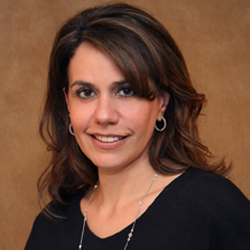Some observers on the outside may well imagine the lifestyle of the contract clinical research associate (CRA) to be something like that of fictional character Ethan Hunt, as portrayed by Tom Cruise in the Mission: Impossible movies. Somewhere—possibly in an exotic location—a clinical trial is in jeopardy. The CRA receives his or her assignment in a message including the phrase “Your mission, should you choose to accept it…” that self-destructs upon completion. Cue the burning fuse, the thrilling theme music, and the montage of images showing our hero racing to the study site just in time to put everything back on track.
In truth, few CRAs can aspire to this level of excitement in their day-to-day duties. However, real-life monitors who are trusted to shepherd complex studies along at sites all over the world—and, yes, occasionally “rescue” them—share one trait with Ethan Hunt, which is a need to achieve and maintain high levels of skill in a variety of core competencies for making what can sometimes be seemingly impossible missions look routine.
That’s why DSP Clinical Research, a full-service contract research organization managing Phase I to IV clinical trials across many therapeutic areas, tasks only Certified Clinical Research Associates (CCRA®s) to assignments through its new co-monitoring service providing support for clinical trials that need to manage difficult study timelines, hit enrollment goals, or reach important study milestones. Other challenges may involve reviewing data, conducting pre-study visits, or preparing for site audits—all with the CCRA working as an extension of the existing study team while minimizing overhead and lag time.
ACRP Certification Helps Your Business Soar
Research shows ACRP results in higher enrollment rates, lower protocol deviations, fewer 483 Warning Letters, improved regulatory compliance, and better inspection performance.
“Monitoring is an area where a study can easily fall behind because of the fast pace of data collection and verification, resulting in a cascading wave of cost incursions,” says Darlene Panzitta, MS, president and founder of DSP Clinical Research in Fairfield, N.J. “Having a fully certified monitoring staff has been an integral part of [our success] over the past decade. There’s a definitive reward to having a certified monitoring staff providing the co-monitoring service—less mistakes, less re-work, deadlines are met and not missed, and the data are allowed to stand on their own merits, instead of being questioned for accuracy or validity.”
The service provides back-up full- or part-time monitors who are trained and ready to help within two weeks of a signed contract, and all are long-term employees who are CCRA-certified through ACRP and fluent in a variety of electronic data capture systems.
“In my opinion, the CCRA is the mark of a true professional,” Panzitta says. “I started out in this industry over 23 years ago as a monitor and patiently waited until I qualified to take the test for the CCRA, and was happy when I passed it the first time. I always felt the CCRA was the fastest way to set yourself apart. The continuing education to maintain that certification is a signal to both the employer and the clientele of the monitor’s dedication to stay up to date on the industry.”
While noting that most clients seem to place a premium on experience over certification, Panzitta says that she would like to turn this thinking around. “I’ll take a monitor with less experience and certification over one with more experience and no certification every time,” she explains, “because that individual has shown the commitment to rise above the standards and to set themselves apart.”
Author: Gary Cramer



